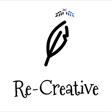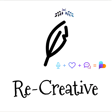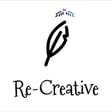
Tanya Davis and Dirty Dancing
The Poet Laureate of Prince Edward Island (PEI), Tanya Davis, joins the lads to talk about the 1987 musical romance, Dirty Dancing.
Tanya is a poet, musician, and performance poet: “My work is very much words based and writing based,” she says. In addition to her performance work and promotion of poetry generally, Tanya takes commissions and writes for events and special occasions.
She also has a band with her partner, called County Line Romance.
“Dirty Dancing to me is about the soundtrack. It’s the first music I listened to just by myself,” says Tanya. She used the music to feel and express something as a young person. Otis Redding’s song “These Arms of Mine” was, and continues to be, a particular favorite.
Learn how it changed Tanya’s life – and influenced her writing – in this episode of Re-Creative.
For more information, check out this episode's show notes page.
Re-Creative is produced by Donovan Street Press Inc. in association with MonkeyJoy Press.
Contact us: joemahoney@donovanstreetpress.com



